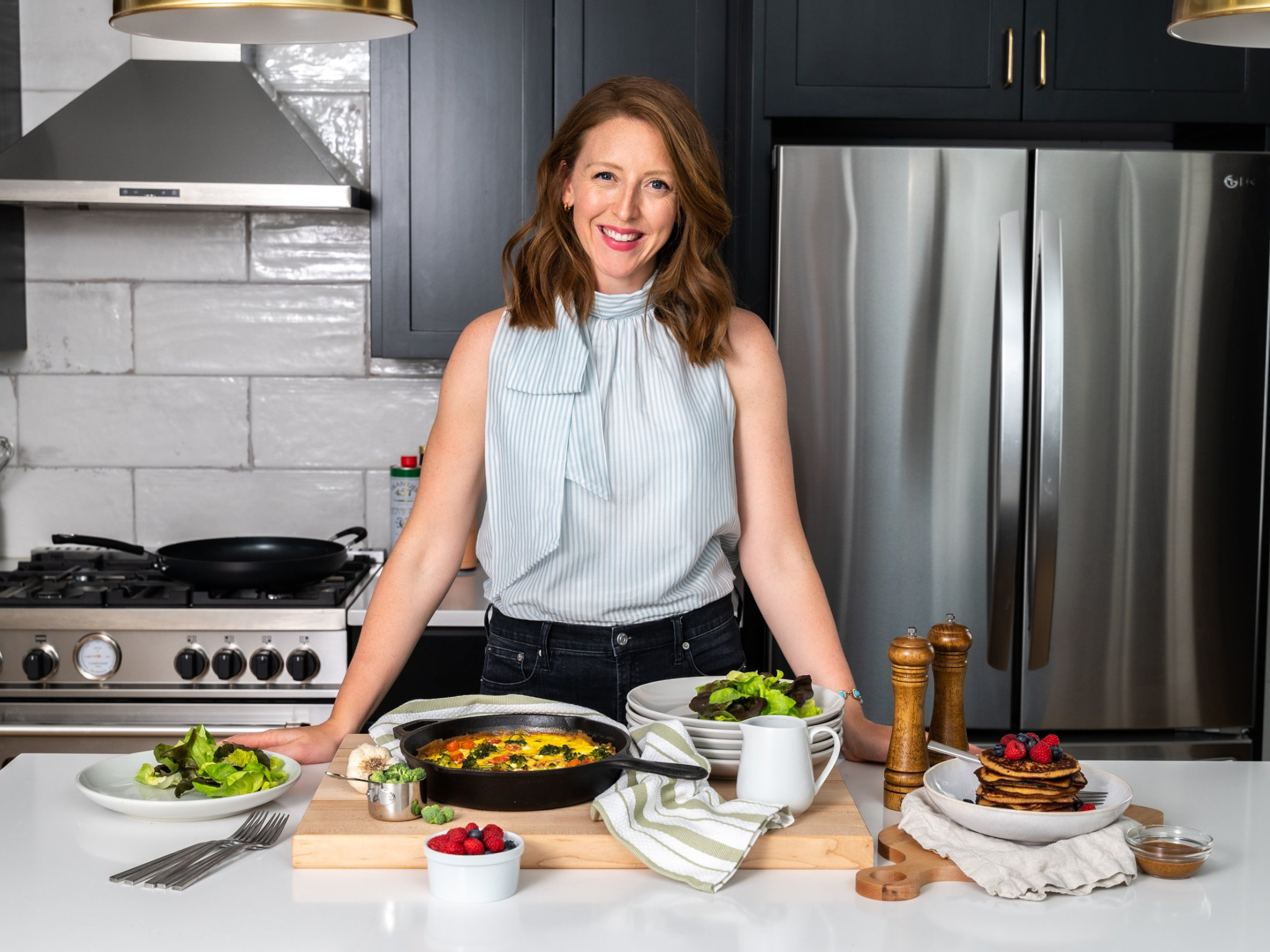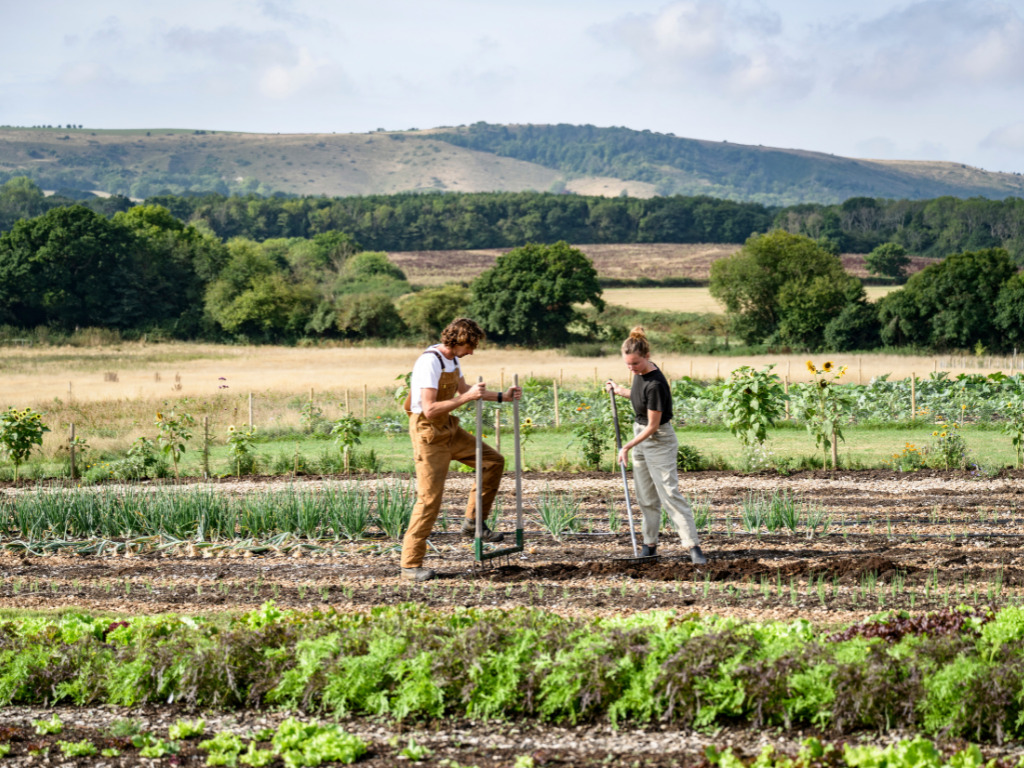
Wellness influencer and Levels co-founder Casey Means is in line to become the next Surgeon General of the US. A divisive figure across the aisle, what could her appointment mean for food tech?
Championed by Donald Trump and Robert F Kennedy Jr, but vilified by their own supporters – including influential far-right conspiracy theorist Laura Loomer – the US’s next surgeon general could be the most politically divisive in recent memory.
President Trump has picked Dr Casey Means as his pick for a post often known as “the nation’s doctor”, describing her as having “impeccable MAHA credentials”, and despite her medical license being inactive. She has replaced Dr Janette Nesheiwat, whose nomination was withdrawn after criticism from the right and questions were raised about her qualifications.
Means is the co-founder of Levels, a company that sells glucose monitors, and author of the diet and self-help book Good Energy, along with her brother Calley Means. The siblings served as advisors to RFK Jr’s presidential bid and were key voices behind his decision to endorse Trump.
Calley is currently serving as a health advisor to the White House, and his sister could join him in the government role if confirmed. Means graduated from Stanford Medical School, but dropped out just before finishing her residency in 2019 after becoming disillusioned with America’s “exploitative” healthcare system.
She is now a wellness influencer who carries many of the same views as RFK Jr, and is a leading voice in the Make America Healthy Again (MAHA) movement. Means herself is a vaccine sceptic, though she did support Covid-19 vaccines and mask policies. While she’s a former vegan, she is is a proponent of raw milk and rails against Big Food and Big Pharma, and advocates for regenerative agriculture and the dismantling of the meatpacking monopoly.
To the left, she is unqualified to be Surgeon General, given her lack of an active medical license and training in nutrition. To the right, she is representative of a shift in RFK Jr’s agenda from focusing on vaccines to prioritising foods.
Nicole Shanahan, RFK Jr’s former running mate, tweeted: “I was promised that if I supported RFK Jr. in his Senate confirmation that neither of these siblings would be working under HHS or in an appointment (and that people much more qualified would be). I don’t know if RFK very clearly lied to me, or what is going on.”
Kennedy, however, feels Means “was born to this job”, writing on X: “She will provide our country with ethical guidance, wisdom, and gold-standard medical advice even when it challenges popular orthodoxies.”
Means’s confirmation process is likely to be heated, complicated, and uncertain, given the complaints from both sides of the aisle. If she makes it through, she could have a major say on the future of agriculture and food tech in the US. Here’s how different sectors could fare.
Plant-based meat: problematic
Meat alternative makers could be in for a storm if Means is confirmed, mainly due to her fierce criticism of ultra-processed foods (UPFs).
“Ultra-processed foods cause serious chronic disease and are highly addictive. Junk food causes more deaths globally than tobacco. We should move to put warning labels on every one of these products, akin to the Surgeon General warning for cigarettes,” she wrote after Trump’s victory in November, noting that such policies have even been pushed by leftist politicians like Bernie Sanders.
The UPF tag has already been a major thorn in the side of plant-based meat, whose sales have dipped continuously over the last few years. In 2024, they fell by 7% in the US. This has coincided with a rise in meat consumption (which reached record sales) amid a wider cultural shift, and RFK Jr’s own criticism of UPFs and “fake meat”.
Means herself has lambasted plant-based meat. In a post promoting her brother’s appearance on Fox News, she wrote: “Fake meat is toxic sludge, never eat it. Make today the day you never buy an ultra-processed food again. Ultra processed food is quite literally how the system is making us sick, dependent, profitable, controllable, mentally ill, and leech our precious minds (Alzheimer’s, a largely lifestyle illness). Don’t fall for the scam. Don’t buy it.”
Plant-based food: unclear, though likely positive
Here’s the thing, though: Means isn’t necessarily against plant-based eating. While she is not a fan of meat alternatives, she has championed whole foods and traditional plant proteins.
“I’ve moved away from personally being plant-based,” she said on a podcast last year, adding: “I think there’s absolutely a way to have a metabolically healthy plant-based diet.”
She went on to reveal that while 75% of her current protein intake comes from animal products, she still loves ot get her protein from “nuts, seeds, beans, [and] legumes”.
In an op-ed for Women’s Health magazine last year, she recommended eating whole-food animal and plant sources, including “tofu, tempeh, nuts, and seeds”. In fact, one of her tips for healthy eating on a budget involved replacing meat and fish with “plant-based proteins, like beans and lentils, for some meals”.
With scientists recommending the US Department of Agriculture prioritise traditional plant proteins over red meat in the upcoming dietary guidelines, Means’s stance could be crucial.
Regenerative agriculture: positive

Like RFK Jr, Means is an outspoken advocate for regenerative agriculture amidst her criticism of the “highly destructive practices of industrial farming”.
“Reform crop subsidies and create programmes to rapidly increase the adoption of Regenerative Farming practices,” she wrote in her policy wishlist for the Trump administration. “Studies have suggested that with current industrial farming practices, American soil will be unsuitable for growing food within 50 years. It will be fully destroyed by glyphosate and other pesticides and fertilisers and devoid of the nutrients needed to grow food.”
She suggests that “choosing regeneratively grown foods is one of the most powerful choices you can make as a health seeker or environmentalist”, since crops grown this way help sequester carbon from the atmosphere, lower fossil fuel use via pesticide reduction, protect water systems, and replenish soil and nature.
While many crop and livestock farmers and experts have found this to be the case, regenerative agriculture suffers from a lack of standards and definitions, which climate activists argue has allowed meat and dairy producers to spout it as a greenwashing tool.
Moreover, Means has encouraged consumption of regenerative meat and dairy, and said she eats “regeneratively raised” elk, bison, and venison.
This is encouraging for startups that champion regenerative farming, and could allay the concerns of many leaders in the space. “I don’t think this administration understands the cost of regenerative farming or how much investment is needed to make it successful at a federal level,” Heather K Terry, CEO and founder of regenerative-farming-centric snack maker GoodSam Foods, told Green Queen in March.
Could Means help bring about that shift in thinking?
Plant-based milk: it depends

Means’s emphasis on natural foods and healthy eating presents two outcomes for non-dairy producers: it’s a win for clean-label products, and a clear loss for those that use emulsifiers and added sugars, including most barista-milks.
“These nut milks are so sneaky,” she said on her Levels podcast. “The most important thing is that you’re buying a version that does not have sweetener in it… And then you want to, of course, try and find one that’s organic, if you can, without a lot of the gums and fillers.”
She went on to provide her own recipe for a two-ingredient homemade nut milk, further emphasising the clean-label aspect. So brands that make non-dairy milks with the base ingredients – be it oats, almonds, macadamias or pistachios – water, and not much else, are best-placed from the would-be surgeon general’s stance.
Her support for raw milk consumption, which has exploded in the US, where sales rose by 24% last year, remains controversial. A host of government agencies, including the FDA, the USDA, and the CDC, have issued warnings against the health risks it poses, especially avian flu, salmonella, and E. coli.
RFK Jr is also an advocate for raw milk. If Means joins him in the administration, this could give producers in this segment further impetus at a real risk to public health.
The post Casey Means As Surgeon General: Could the Wellness Influencer Be Good for Food Tech? appeared first on Green Queen.
This post was originally published on Green Queen.